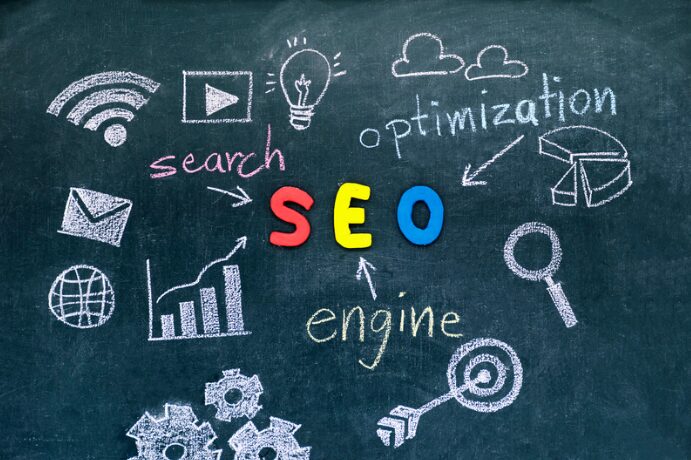
Maximize Event Attendance with Proven SEO Strategies
BlogSEO for Events: Because Shouting Into the Void Isn’t a Strategy Ever tried promoting an event and felt like you’re yelling into a crowded room where everyone’s wearing noise-canceling headphones? Yeah, we’ve been there too. Whether you’re organizing a local art fair, a tech conference, or a pop-up dinner, getting eyes on your event is half the battle. That’s where SEO swoops in like a superhero with a spreadsheet (not the most glamorous sidekick, but hey, it gets the job done). At Sitelinx Organic SEO Agency in Los Angeles, we’ve spent years perfecting the art of making events visible online. And trust us—there’s more to it than slapping a Facebook event together and praying to the algorithm gods. Let’s break down how SEO can turn your event from “wait, that happened?” to “sold out in 24 hours.” Why SEO Matters for Events (Spoiler: It’s Not Just About Keywords) Let’s get real: SEO isn’t just for e-commerce sites or blogs. Events are time-sensitive, competitive, and often hyper-local. If your target audience can’t find your event page, you’re basically hosting a party for your pet goldfish. Here’s the kicker: SEO for events isn’t a one-size-fits-all strategy. A music festival needs different tactics than a B2B conference. But the core principles? Those stay the same. Local SEO: Your Secret Weapon for Filling Seats If your event is happening in a physical location (and not in the Metaverse… yet), Local SEO is your best friend. Think about it: when someone Googles “best food festival near me” or “Los Angeles tech meetups,” you want your event to pop up like that one enthusiastic friend who always knows the hot spots. How do we make that happen? Optimize for location-based keywords: Include city names, neighborhoods, or landmarks. Claim and polish your Google Business Profile: AKA the MVP of local SEO. Update hours, add photos, and beg for those Google Business reviews (politely, of course). Leverage local directories and partnerships: Sites like Eventbrite, Meetup, or even local newspapers. Pro tip: If this sounds exhausting, that’s because it is. But guess what? Sitelinx offers local SEO services that handle the heavy lifting. We’ll make sure your event doesn’t get lost in the digital noise. Technical SEO Services: The Boring (But Essential) Stuff Okay, let’s talk about the unsexy side of SEO. Technical SEO is like flossing—nobody wants to do it, but ignoring it leads to bigger problems. For events, this means: Mobile optimization: Because nobody’s buying tickets on a desktop in 2024. Fast load times: If your site takes longer to load than a microwave burrito, you’re losing attendees. Structured data markup: Help Google understand your event dates, locations, and ticket info. And if your site runs on WordPress? Double-check that your plugins are updated, your URLs are clean, and your images aren’t hogging bandwidth. (Psst—our WordPress SEO services can automate 90% of this. Just saying.) Building Buzz: SEO Meets Social Proof Ever clicked on a search result just because it had a ton of positive reviews? That’s social proof in action. For events, Google Business reviews are golden. Encourage attendees to leave feedback post-event—it boosts future SEO and builds credibility. But here’s a hot take: SEO and social media aren’t rivals. They’re teammates. Share your event page on Instagram, TikTok, or LinkedIn, and watch those backlinks roll in. Just don’t forget to: Use trackable UTM parameters. Embed keywords in your social posts (subtly, though—no one likes a hashtag hoarder). Choosing the Right SEO Partner: Because DIY Isn’t Always Cute Look, we get it. Hiring an SEO company feels like handing over the keys to your car. But here’s the truth: the best SEO companies for small business (like yours) don’t just tweak meta tags—they become an extension of your team. At Sitelinx, we’re not just another SEO agency. We’re a bunch of nerds who geek out over keyword trends, site audits, and turning “meh” traffic into “holy cow, we need a bigger venue!” results. Here’s what sets us apart: Hyper-local expertise: We’re based in L.A., so we know the market inside-out. Transparent reporting: No jargon, just clear metrics. A mix of creativity and tech: Our SEO specialists and marketing consultants work together like peanut butter and jelly. Still on the fence? Ask yourself: Would you rather spend hours drowning in Google Analytics or actually planning your event? Yeah, thought so. FAQ: Your SEO Questions, Answered 1. “How long does SEO take to work for an event?” It depends. If your event is next week, you’re better off buying ads. But for events 3–6 months out, SEO can drive steady, organic traffic that converts. Start early—your future sold-out self will thank you. 2. “Can I handle SEO myself?” Sure, if you enjoy deciphering algorithm updates in your spare time. But for most busy organizers, partnering with an SEO specialist saves time, stress, and costly mistakes. 3. “Do I really need a Google Business Profile for a one-time event?” Yes. It’s free, it boosts local visibility, and it’s a magnet for reviews. Set it up, optimize it, and let it work its magic. The Bottom Line: SEO Is Your Event’s Best Wingman Let’s face it: organizing an event is chaotic enough without worrying whether anyone will show up. SEO isn’t a magic wand, but it’s the closest thing we’ve got. From technical SEO services to website management, the right strategy turns “Why isn’t this working?!” into “Wait, how did we hit capacity so fast?!” And hey, if you’re drowning in spreadsheets or just want to hand this off to pros, Sitelinx Organic SEO Agency is here to help. We’re based in Los Angeles, but we’ll make your event the talk of the town—or the internet. Ready to stop shouting into the void? Let’s chat. Table: Traditional Marketing vs. SEO for Events Aspect Traditional Marketing SEO for Events Cost High (print ads, billboards) Cost-effective long-term Targeting Broad, less precise Hyper-local + intent-driven Lifespan Short-term (weeks) Builds momentum over months Measurability Fuzzy metrics Clear, trackable data Best For Immediate awareness

Unlocking Yahoo SEO: Strategies to Boost Your Business Visibility
BlogYahoo SEO Optimization: The Underdog Strategy Your Business Needs Let’s cut to the chase: when’s the last time you seriously thought about Yahoo as part of your SEO strategy? If your answer is “never” or “2003,” you’re not alone. Most businesses hyperfocus on Google (we get it—it’s the big dog), but here’s the kicker: Yahoo still drives 15% of all U.S. desktop searches. That’s a goldmine hiding in plain sight. At Sitelinx Organic SEO Agency in Los Angeles, we’ve quietly used Yahoo SEO to catapult clients ahead of competitors who’ve forgotten this platform exists. Let’s talk about why Yahoo deserves a seat at your digital marketing table—and how to make it work without sounding like a time traveler from the dial-up era. Why Yahoo SEO? (And No, This Isn’t a Joke) Yahoo might feel like the “MySpace” of search engines, but here’s the reality: it’s still the 4th most visited website globally. Millions of users—especially older demographics and loyal email users—stick with Yahoo out of habit. Ignoring them is like leaving free money on the table. Here’s why Yahoo SEO is a stealth weapon: Less competition: Everyone’s obsessed with Google. Ranking on Yahoo is easier (for now). Local SEO perks: Yahoo Local Works integrates with partners like Yelp and TripAdvisor. Perfect for brick-and-mortar businesses. Backlink diversity: Yahoo Directory (yes, it’s still around) can boost your domain authority. We’ve seen clients rank #1 on Yahoo in weeks—something that’d take months on Google. One pizza shop in LA doubled its delivery orders just by optimizing for Yahoo Local. (Pro tip: Mozzarella sells better when people can actually find you.) Yahoo vs. Google: The SEO Smackdown Let’s get real: Yahoo isn’t Google. Their algorithms prioritize different factors. Here’s a quick cheat sheet: Factor Yahoo Google Keywords Exact match still matters Semantic intent rules Backlinks Quantity over authority Authority + relevance Local Listings Yahoo Local + partners Google Business reviews Content Updates Weekly freshness ideal Daily updates favored See the pattern? Yahoo rewards consistency over complexity. While Google wants you to write like Shakespeare, Yahoo’s cool with straightforward, keyword-rich content. How to Dominate Yahoo SEO (Without Losing Your Mind) 1. Claim Your Yahoo Local Listing Like It’s 1999 Yahoo Local is the unsung hero for small businesses. Sync it with Apple Maps, Yelp, and TripAdvisor, and suddenly you’re visible across platforms. At Sitelinx, we do this for clients and sprinkle in geo-specific keywords. (“Best vegan tacos in Silver Lake” works wonders.) 2. Keyword Stuffing? Not Quite—But Close Yahoo’s algorithm still loves exact-match keywords. Use tools like SEMrush (filter for Yahoo) to find low-hanging fruit. Example: A dental clinic we work with ranked for “emergency dentist Los Angeles” by using the phrase verbatim in titles, meta descriptions, and H2 tags. 3. Backlinks: Quantity Trumps Quality (Sometimes) Google penalizes spammy links. Yahoo? Not so much. We’ve seen clients boost rankings by submitting to niche directories Yahoo trusts. Just avoid “link farms” that scream 2005. 4. WordPress Users, Rejoice! Plugins like Yoast SEO work for Yahoo too. Set your focus keyword, optimize meta tags, and let Yahoo crawl your site weekly. One client’s WordPress blog saw a 40% traffic bump from Yahoo in a month. Common Yahoo SEO Mistakes (And How to Fix Them) Mistake #1: Ignoring Yahoo Business Essentials If you’ve set up Google Business reviews but skipped Yahoo Local, you’re missing half the local SEO battle. Fix it in 10 minutes: Verify your business and add photos. Mistake #2: Overcomplicating Content Yahoo isn’t AI-driven (yet). Write clear, concise product pages with exact keywords. Save the poetic prose for Google. Mistake #3: Forgetting Mobile Optimization 45% of Yahoo searches happen on mobile. If your site isn’t responsive, Yahoo will drop you faster than a Nokia phone. “But Does This Actually Work?” 4 FAQs Q1: Is Yahoo SEO worth the effort if Google dominates? Absolutely. Think of it as “bonus traffic” with less competition. For local businesses, it’s a no-brainer. Q2: How do I track Yahoo rankings? Tools like STAT or AccuRanker let you filter by search engine. We use these at Sitelinx to show clients real-time progress. Q3: Can Yahoo SEO help my WordPress site? 100%. Optimize permalinks, use alt tags, and submit your sitemap to Yahoo Site Explorer. Q4: Should I hire an SEO agency for this? IMO, yes—if you want results fast. Agencies like ours (hint, hint) know Yahoo’s quirks and can dodge pitfalls. Why Sitelinx Organic SEO Agency Loves Yahoo (And You Should Too) We’ll level with you: we’re an SEO company based in LA, not magicians. But Yahoo’s low-hanging fruit lets us deliver wins quickly while we grind on long-term Google strategies. Recently, a client’s Yahoo traffic covered 30% of their ad budget. Not too shabby for an “underdog” tactic. Ready to give Yahoo a shot? Here’s your playbook: Claim your Yahoo Local listing. Update content with exact-match keywords. Build niche directory backlinks. Track results and tweak. Or, skip the legwork and let our SEO specialists handle it. Because who has time to learn another algorithm? Final Thought Yahoo SEO isn’t about replacing Google—it’s about stacking advantages. And hey, if nothing else, you’ll impress your friends with your “retro” marketing skills. 😉 P.S. If you’re in LA and want to explore Yahoo SEO (or just need help with Google Business reviews), hit up Sitelinx. We’re nerds about this stuff—in a cool way, promise.
